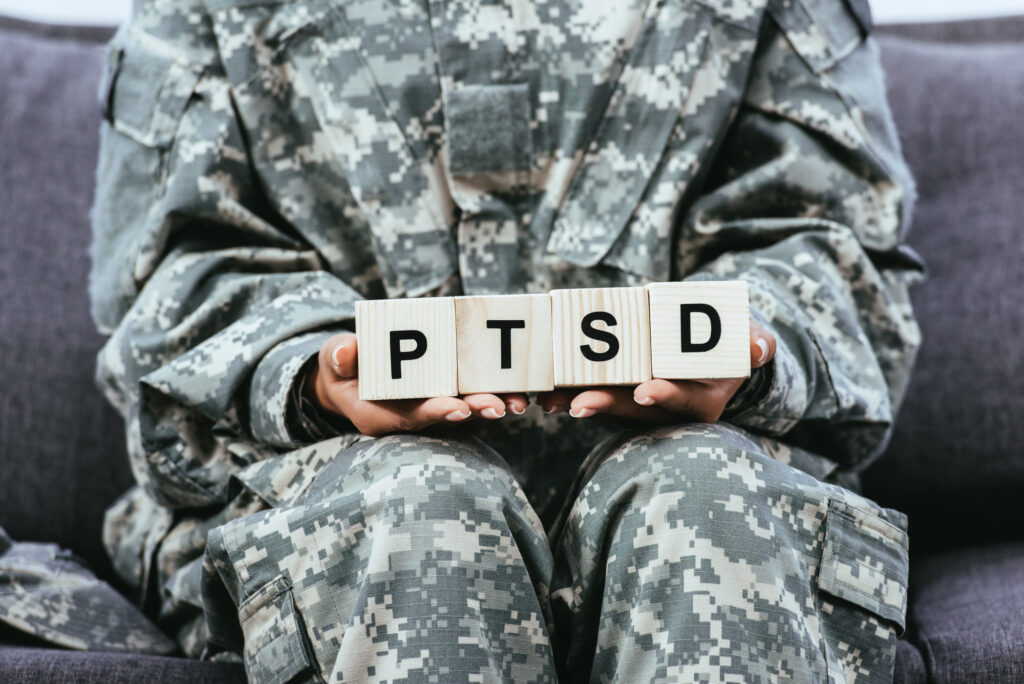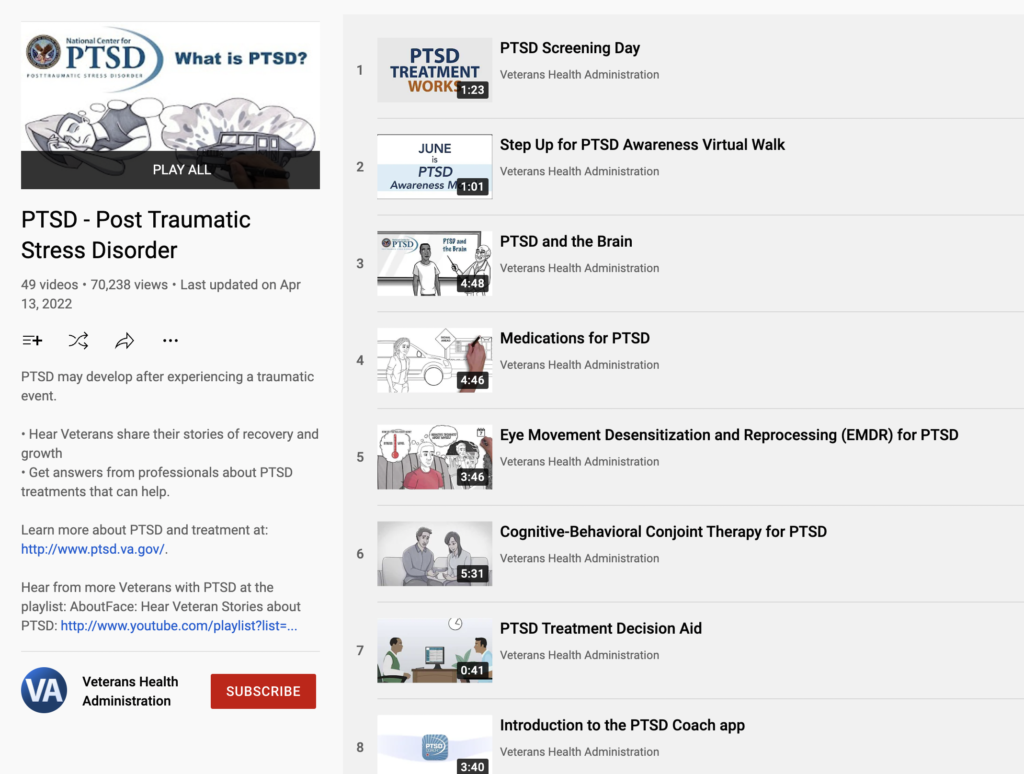
Post-traumatic stress disorder (PTSD) is a psychiatric or mental disorder that occurs in some people who have either experienced or witnessed a very traumatic event.
Please help raise awareness about PTSD by sharing the 5 reliable sources that we have compiled below with patients, their families, and the public.
What is posttraumatic stress disorder? (American Psychiatric Association)
Post-traumatic stress disorder (Medlineplus.gov)
Post-Traumatic Stress Disorder (National Institute of Mental Health)
National Center for PTSD.
YouTube playlist of the National Center for PTSD (see screenshot below)

Related Pages
Symptoms and Diagnosis
What is post-traumatic stress disorder (PTSD)?
Four types of symptoms are present in PTSD
Not all trauma is associated with posttraumatic stress disorder (PTSD)
What is nightmare disorder and why is it important?
Share reliable sources for education about PTSD
Encourage screening for possible post-traumatic stress disorder (PTSD)
Treatment
PTSD-associated nightmares: Menu of treatment options
Does prazosin work for PTSD? If so, for which symptoms?
How exactly should we dose prazosin in PTSD?
(Relative) contraindications to prazosin for PTSD-associated nightmares
Warning! Prazosin can lead to hypotension/ syncope after the first dose
Practice guidelines for posttraumatic stress disorder (PTSD)
Other
What can we do to support “National Post-Traumatic Stress Disorder Awareness Month”?
References
American Psychiatric Association: Diagnostic and Statistical Manual of Mental Disorders, Fifth Edition. Arlington, VA, American Psychiatric Association, 2013.
Copyright © 2022 to 2025, Simple and Practical Medical Education, LLC. All rights reserved. The content on this website may not be reproduced in any form without express written permission.
Disclaimer: The material on this website is provided as general education for medical professionals. It is not intended or recommended for patients or other laypersons or as a substitute for medical advice, diagnosis, or treatment. Patients must always consult a qualified healthcare professional regarding their diagnosis and treatment. Healthcare professionals should always check this website for the most recently updated information.
Leave a Reply